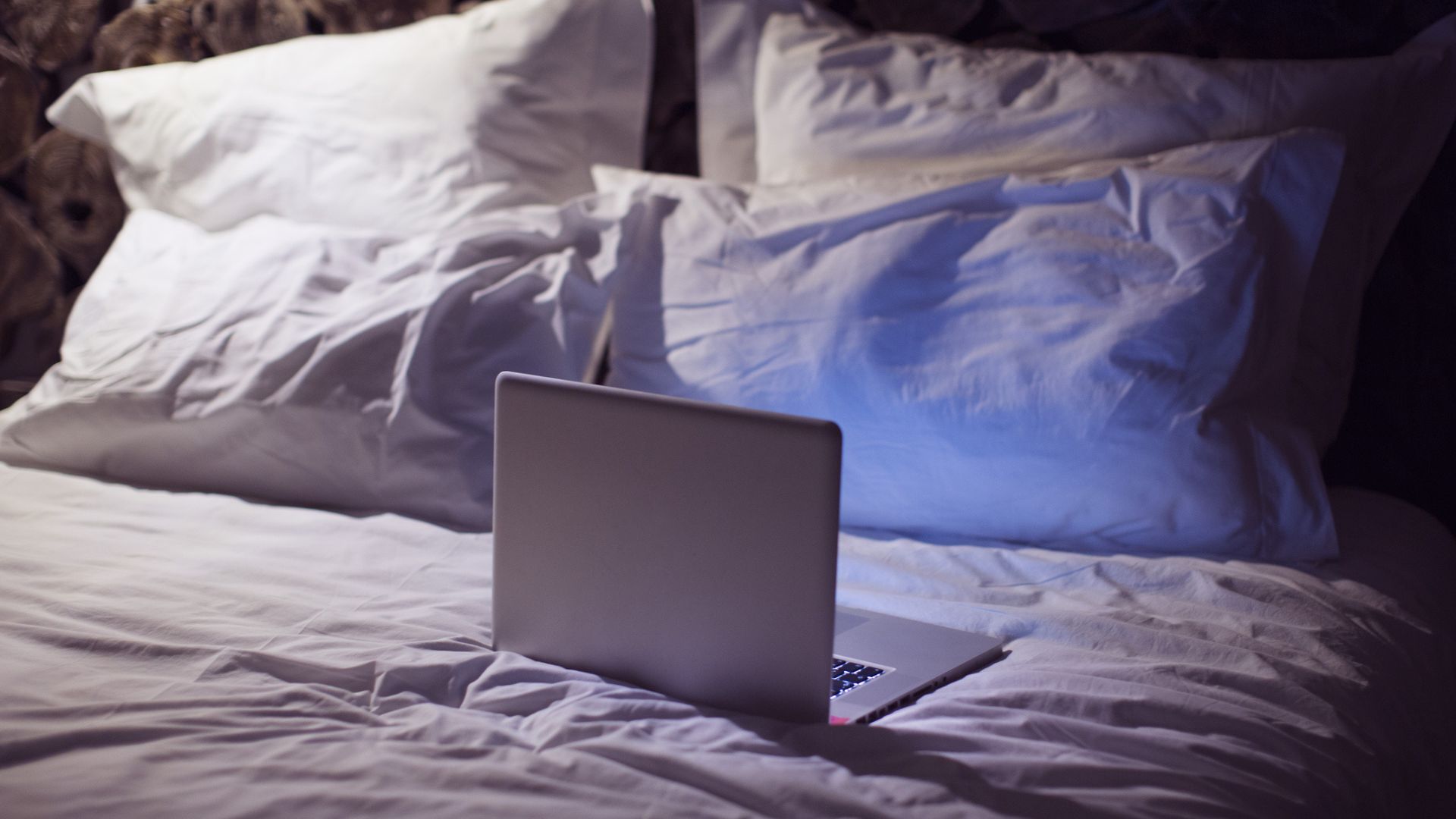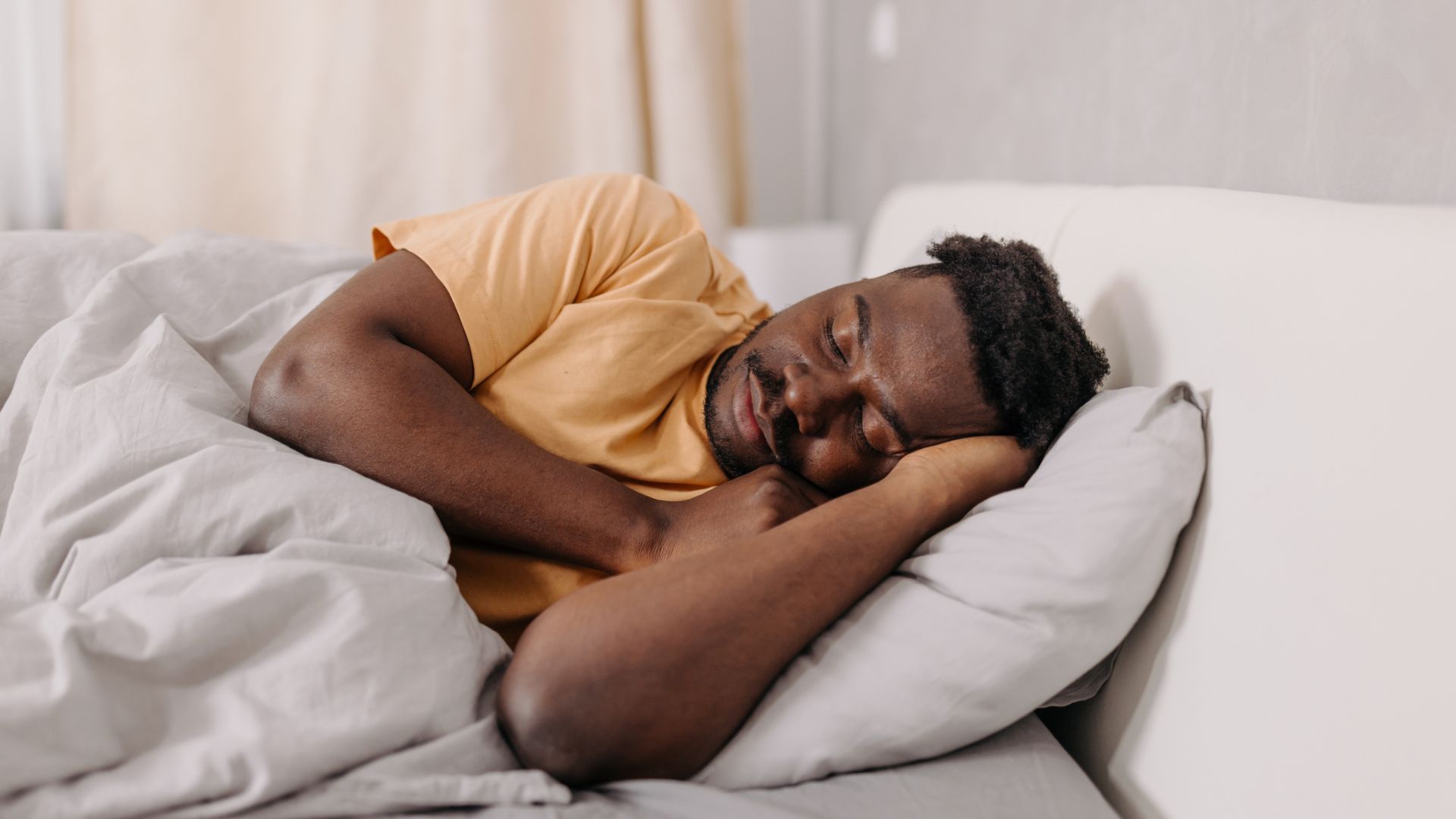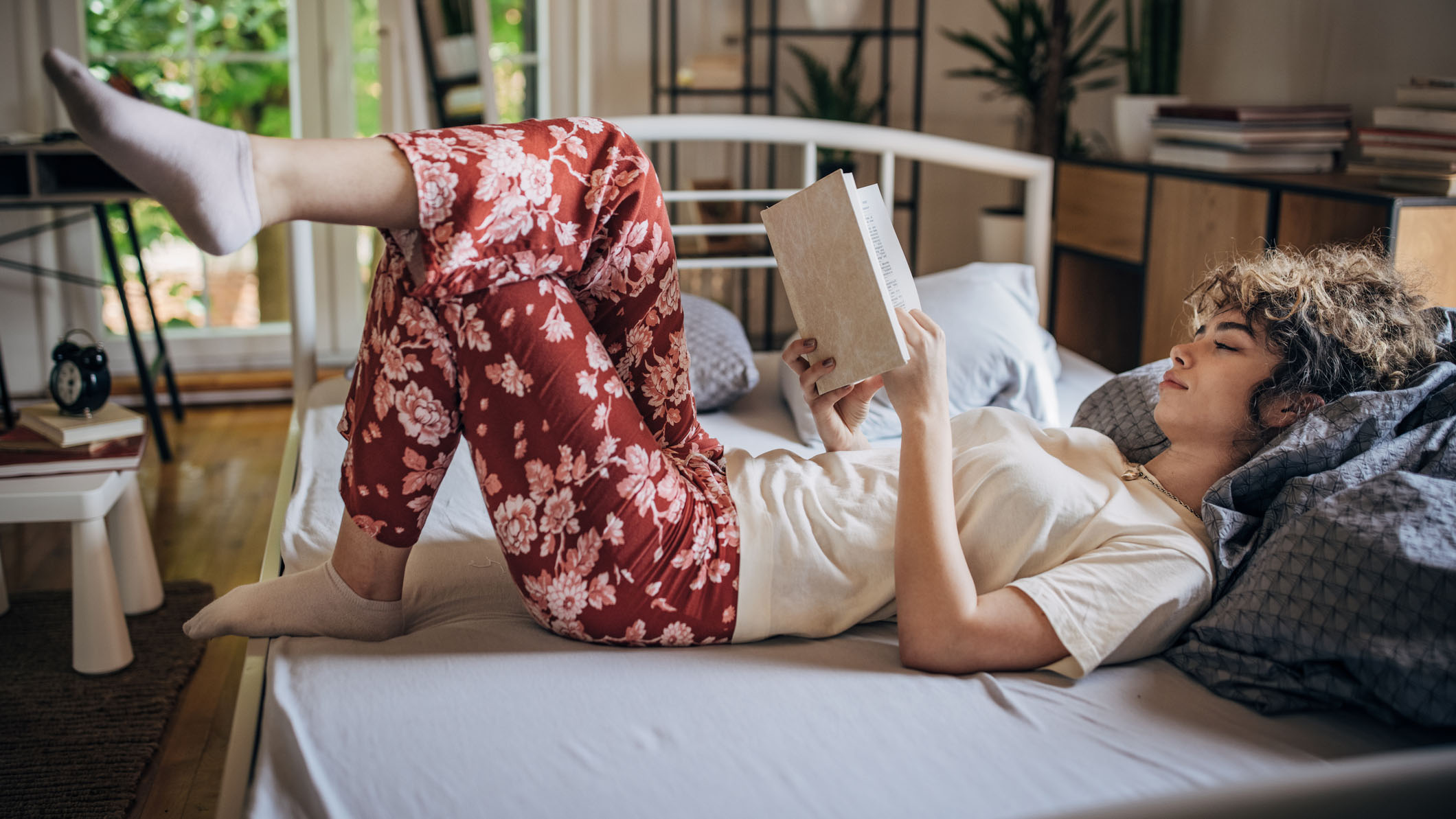
As a sleep editor, a large portion of my job involves staying abreast of the latest sleep studies and interviewing the sharpest minds in order to keep you well-informed on the vast topic of sleep health. Research, nuance and expert opinion all help shape the advice that I offer — but is there a shortcut that we could all be taking?
With artificial intelligence (AI) infiltrating our daily lives at an increasing rate, I decided to see if it could curate the perfect nighttime routine. How could a robot really compare to the hard-won knowledge I’ve gained during my career as a journalist?
I asked AI to create the perfect nighttime routine and within seconds I had my answer. Here’s how a ChatGPT-produced nighttime routine compares to my own advice as a sleep editor.
What happened when I asked AI to create the perfect nighttime routine
I decided to keep my request fairly vague but also tailor it slightly in line with a consistent sleep issue I struggle with; getting my full eight hours. ‘Create the perfect nighttime routine to ensure I get eight hours of sleep’, I asked ChatGPT. Within seconds, this is what I received back...
1. Set a consistent bedtime
"Choose a bedtime that allows you to get 7-9 hours of sleep. Aim to go to bed and wake up at the same time every day, even on weekends."
How this AI generated advice compares to my own: As a sleep editor the advice I'm fed from experts and studies alike is that a consistent sleep schedule is one of the key pillars of quality sleep.
Going to bed and waking at the same time every day help establish your circadian rhythm, which is your body's internal clock. Once established, a consistent sleep schedule means that you'll feel tired and alert at roughly the same time every day, making it easier to fall asleep and easier to wake up feeling refreshed.
2. Wind down one hour before bed
"Dim the Lights: Start dimming the lights around your home to signal to your body that it’s time to wind down. Avoid bright screens and harsh lighting.
Limit Screen Time: Reduce exposure to screens (phones, tablets, computers) at least an hour before bed. The blue light emitted by screens can interfere with melatonin production, making it harder to fall asleep."
How this AI generated advice compares to my own: The blue light emitted from our screens can reduce melatonin production, which is a hormone our brain's produce in order to signal to both body and mind that sleep is imminent. While some studies suggests that the blue light from our phones only delays sleep by around 2.7 minutes, sleep experts agree that doom scrolling in bed is bad news for your sleep health.
In terms of when your nighttime routine should start, it doesn't have to be an hour before bedtime. If setting aside one hour for pre-bed relaxation is unrealistic, thirty minutes wind-down time will still be beneficial.
3. Create a relaxing environment

"Comfortable Sleep Space: Ensure your bedroom is cool, dark, and quiet. Consider blackout curtains, earplugs, or a white noise machine if needed.
Comfortable Bedding: Invest in good quality pillows and a mattress that suits your sleeping style."
How this AI generated advice compares to my own: A decent mattress, pillows and bedding can make or break your sleep quality (if you are shopping for a new mattress, our guide to the best mattress of 2024 includes top-rated recommendation for all sleep styles and budgets).
In addition to your comfort, a dark, quiet and cool sleep environment is crucial. Ambient light and noise can lead to nighttime awakenings, while the optimum temperature for quality sleep is between 68 and 77 °F (20 and 25 °C).
4. Engage in relaxing activities
"Read a Book: Choose a calming book (not too stimulating) to help transition from the day.
Take a Warm Bath or Shower: A warm bath can help lower your body’s core temperature and signal to your body that it’s time to sleep.
Gentle Stretching or Yoga: Engage in some light stretching or yoga to relax your muscles and relieve tension."
How this AI generated advice compares to my own: When I spoke to chartered phycologist and neurologist Dr Lindsay Browning on the topic of creating the perfect nighttime routine for adults, avoiding stimulating material - whether it's the evening news, a scary film, or even a fraught conversation - was one of her key tips. Becoming too stimulated before bed can make it difficult to fall asleep.
Instead, engaging in relaxing activities, such as gentle stretching and a warm bath will help promote deeper sleep. Studies show that getting out of a warm bath before bedtime mimics the core temperature drop we experience in the run up to sleep, helping to signal to the body that sleep is imminent.
5. Mindfulness and relaxation techniques

"Meditation: Spend 5-10 minutes meditating or practicing deep breathing exercises to calm your mind.
Gratitude Journal: Write down a few things you’re grateful for or reflect on positive aspects of your day."
How this AI generated advice compares to my own: Jotting down your thoughts is a science-backed way to quieten your mind before bed. Journaling, specifically in an alternative space to your bedroom, can help break the association between sleep and any thoughts that are troubling you.
Additionally, certain breathing exercises for sleep, such as the 4-7-8 and body scan method, can help overcome feelings of anxiety, enabling you to fall asleep faster and stay asleep longer.
6. Prepare for the next day
"Plan Tomorrow’s Agenda: Make a brief to-do list or plan for the next day to clear your mind of any lingering thoughts or worries.
Set Out Clothes and Essentials: Prepare anything you need for the morning to reduce stress and save time."
How this AI generated advice compares to my own: There is evidence to suggest that preparing for the following morning can make it easier to fall asleep the night before. Writing a to-do list, laying out your clothes and packing your work bag can remove any anxiety you feel about the day ahead, helping you to drift off quicker.
7. Avoid stimulants

"Limit Caffeine and Alcohol: Avoid consuming caffeine or alcohol at least 4-6 hours before bed, as they can disrupt sleep.
Light Snack: If you're hungry before bed, choose a light snack that promotes sleep, like a banana or a small handful of nuts."
How this AI generated advice compares to my own: Again, avoiding stimulants such as caffeine, alcohol and sugar too close to bedtime is crucial for a decent night's sleep.
Caffeine has a long half-life, which means it will stay in your system long after you consume it, although exactly how long will be different for everyone. Meanwhile, alcohol can make it easier to fall asleep but can make it difficult to stay asleep.
Should we let AI generate our sleep advice?
On a surface level, the advice generated by ChatGPT was fairly accurate. Which, given that it churns through vast amounts of data within microseconds, you would expect.
However, what ChatGPT did lack when curating a perfect nighttime routine was a deeper understanding of sleep health. AI is a great tool for kicking off your own research into sleep health, but shouldn't ever be used as an alternative to expert advice and scientific studies.







